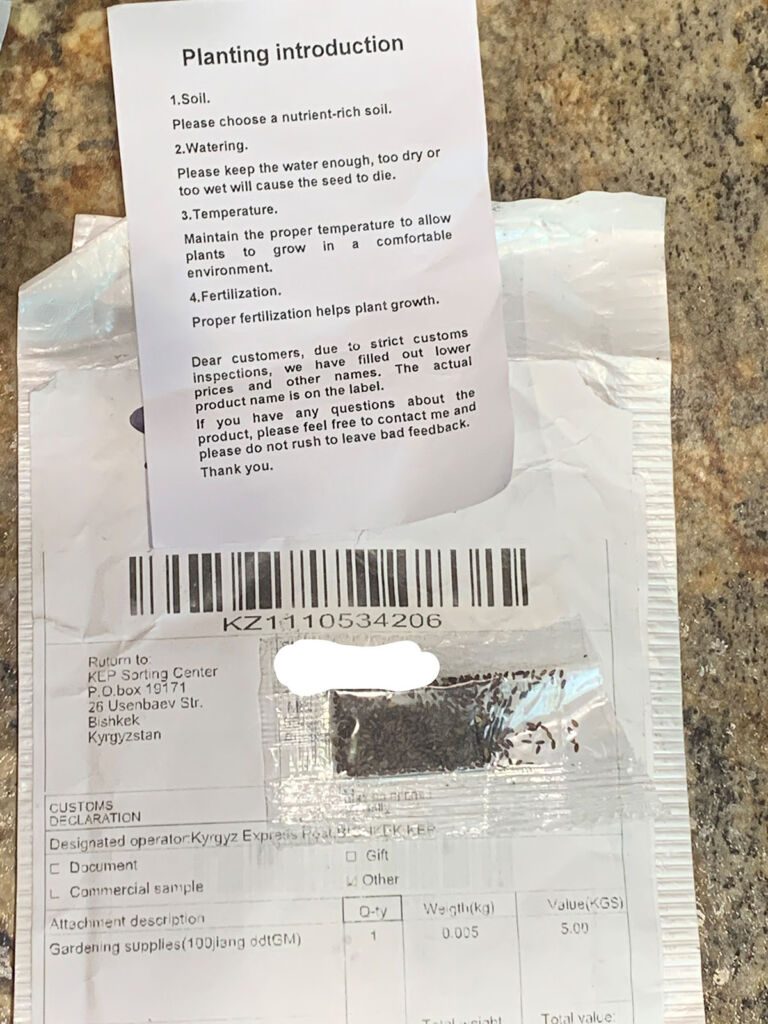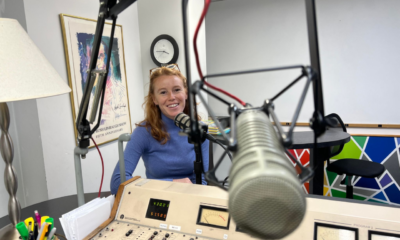Agriculture
USDA believes mystery seeds are an e-commerce “brushing” scam

In about a week’s time, the Minnesota Department of Agriculture (MDA) received more than 760 complaints of unsolicited seed packages and identified several varieties.
Denise Thiede oversees the seed, noxious weed, hemp, and biotech programs at MDA. She said staff received more than 700 calls last week and set up an online form to collect complaints over the weekend. The department itself collected more than 100 packets to be identified by seed analysts with the MDA laboratory.
Varieties included cosmos, radish, mung bean, juniper, mint basil, cucurbit, and zinnia. Thiede said they plan to forward all seed samples to the USDA for official identification.
“So far, we have not identified any invasive species,” Thiede said. “The concerns though could be that they have seed-borne pathogens that they can carry. “Normally, a phytosanitary inspection is done for any seed that’s being imported into the U.S., and those pathogens need to be determined before seeds can be imported.”
Federal officials are investigating the source of the seeds, and the USDA is currently referring to the situation as a “brushing scam” where people receive unsolicited items from a seller who then posts false customer reviews to boost sales. Their latest statement on the seed packages can be found here.
The USDA said consumers who did receive packages may want to change passwords to their online shopping sites and contact the eCommerce company to see if their accounts were compromised. Consumers have noted other items arriving at random such as face masks or jewelry. Currently, MDA’s highest priority is resolving seed concerns.
Those receiving the packages have indicated they either never made an online seed order, or they purchased seeds online earlier in the year but never got them and their order indicates it is still unfulfilled.
County agriculture inspectors in Minnesota are helping collect seed samples, but because many are working remotely, the quickest way to submit a seed sample is to mail it to the Minnesota Department of Agriculture.
“We do not want any unlabeled seed to get planted, and we really want to collect all of this seed and provide it to the USDA,” Thiede said.
Anyone who received unsolicited packages of seeds is asked to do the following:
- Save the seeds and the package they came in, including the mailing label.
- Do not open the seed packets.
- Do not plant any of the seeds.
- If the packets are already opened, place all materials (seeds and packaging) into a tightly sealed plastic bag.
- Contact the MDA through this form (www.mda.state.mn.us/unlabeledseeds).
If the seeds were already planted, MDA asks residents to destroy any plants that have germinated. While plants and soil are usually prohibited from trash collection, in this unusual situation, MDA asks people to pull up the plants, double bag them and the surrounding soil, and dispose of everything in the trash. Do not compost the seeds, plants, or soil. Please notify the MDA if you have disposed of any seeds or plants through their contact form.
Thiede said all seeds sold from a reputable source should carry comprehensive labels and have information about the type of seed in the package, the purity of that seed, and whether there are any weed seeds or noxious weeds present. She added the seeds would be named and there would be a number per pound and germination percentage to guarantee quality. Those selling seeds are required to have a permit from the MDA. Seed permit holders can be found on the MDA website.







